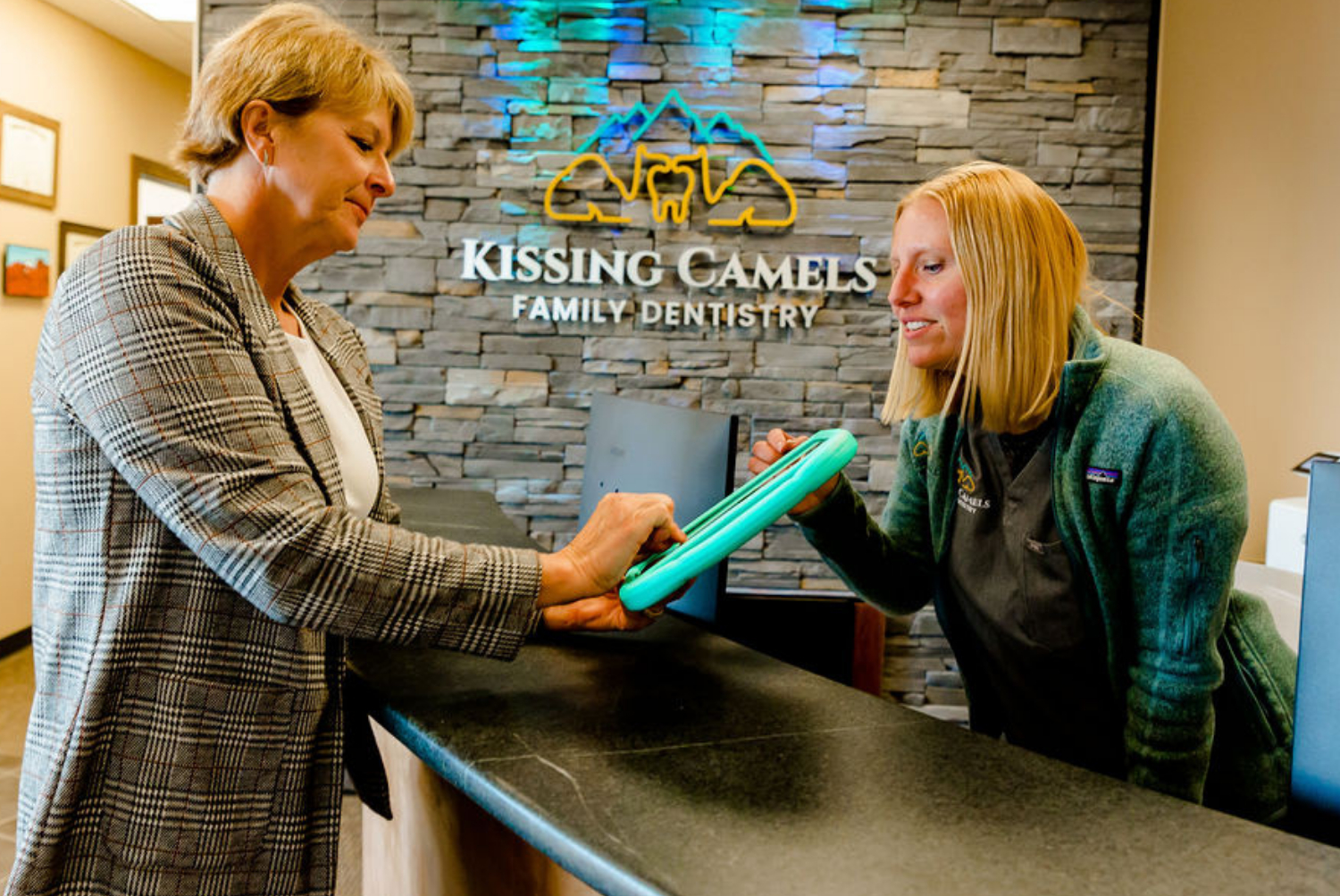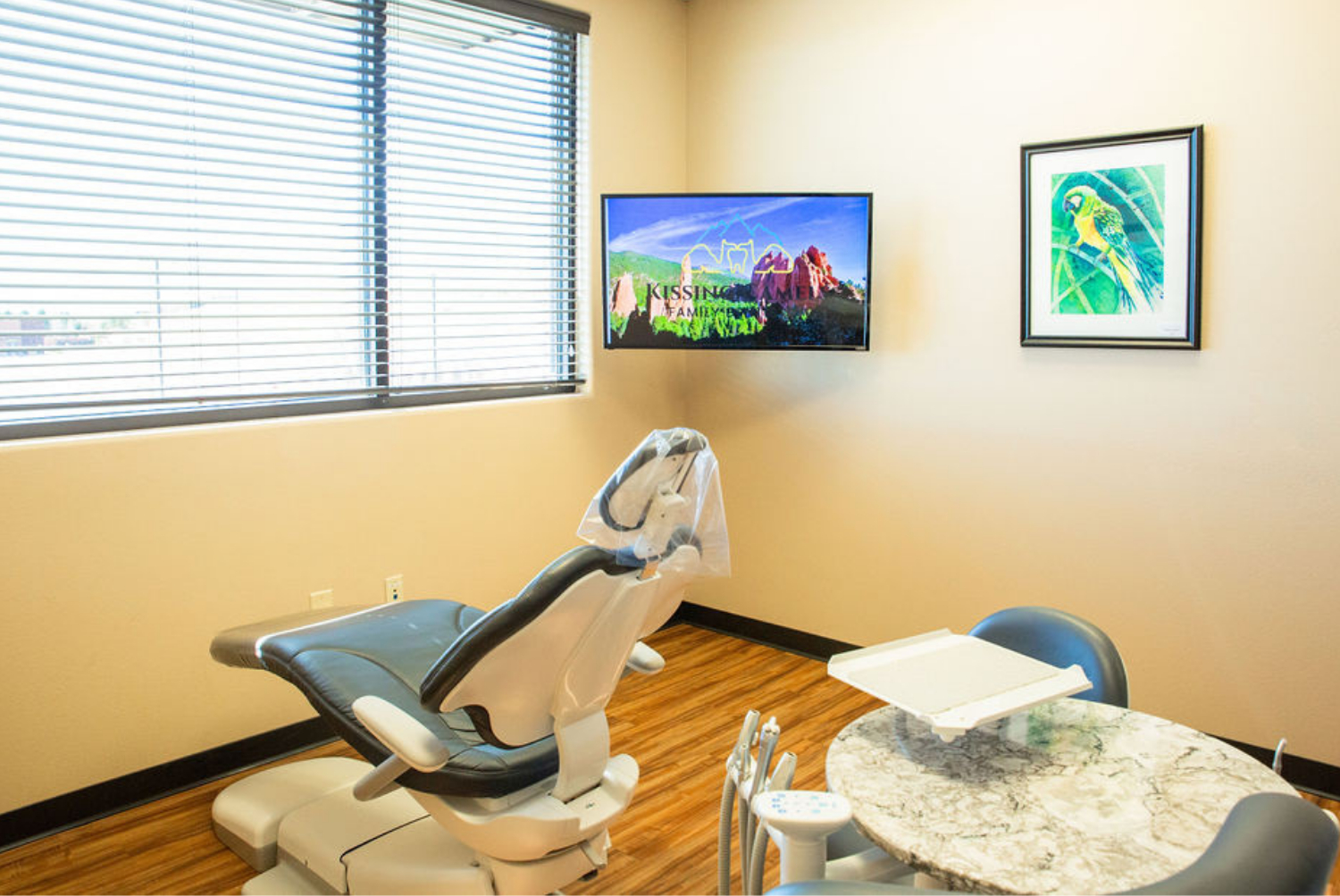Dentures vs. Dental Implants Colorado Springs
Dentures vs. Dental Implants
It’s reasonable to be saddened by the loss of a tooth. Dentures and dental implants are two possibilities for restoration. But, with so many variables to consider, such as appearance, feel, pricing, and more, how can you know which is best for you? Here’s what you should know about dentures vs. dental implants from your Colorado Springs Dentist.
Should You Choose Dentures or Implants?
Our cosmetic dentist Colorado Springs will break it down, so you don’t have to. Here’s all you need to know about the pros and cons of dentures vs. dental implants.
What Exactly Are Dentures?
Dentures are mouthpieces that are made by dentist Colorado Springs and may be removed. They are used to repair lost teeth as well as some gum tissue. A pink gum-colored acrylic foundation is used to make dentures. This foundation supports the denture teeth.
A lightweight metal structure will be used in sure dentures to give further strength and stability. Your cosmetic dentist 80907 can make you either complete or partial dentures.
Complete Dentures
To begin, complete or full dentures replace all teeth in either the upper or lower jaw or both jaws. Dentures that are entirely attached to the gums are known as complete dentures.
Partial Dentures
Partial dentures are used to close gaps in the mouth. As a result, partial dentures are often utilized when some natural teeth remain.
Clasps around existing teeth support these dentures. In addition, precision attachments put onto crowns may also be used to secure partial dentures.
Advantages of Dentures
Below, our restorative dentistry team shares common advantages of dentures.
- Implants are more costly than dentures.
- Patients who have lost bone and gum tissue might benefit from dentures (unlike implants, which must be anchored to bone).
- Denture fitting is a non-invasive surgery.
- Furthermore, dentures do not need drilling into the bone, unlike with implants.
- Dentures are made in a brief period of time, requiring just four dental appointments.
Disadvantages of Dentures
Of course, with every procedure there are pros and cons. Below, our dentures team shares disadvantages of dentures.
- As the structure of your face changes with age, adjustments or replacements may be required.
- Also, dentures may take some getting accustomed to, and they might be unpleasant at first, particularly the first few days.
- Additionally, there can be increased salivation, trouble eating, and difficulty speaking are all possible symptoms.
- Dentures, like natural teeth, will need everyday maintenance. If your dentures aren’t properly cared for, infection around the mouth and gums might emerge.
What Are Implants?
A dental implant is a titanium post surgically implanted into the jawbone to replace a missing tooth. Dental implants are replacements for a natural tooth’s root. This is a long-term replacement for a lost tooth or teeth.
The post of the implant fuses with the jawbone. This generates an anchor that holds a replacement tooth in place.
This method may be utilized to replace one or more teeth and support crowns and dentures.
Implants resemble natural teeth in appearance. They will need the same level of maintenance and are likely to last a lifetime.
Furthermore, dental implants may assist preserve the shape of your jaw, reducing the sunken look observed in individuals who have lost teeth.
How Dental Implants Work
A titanium post is initially inserted into the bone before installing dental implants. This serves as a foundation for a new tooth affixed to the top of the post.
Because the operation needs a high degree of knowledge to be performed correctly and securely, it’s recommended to seek an experienced dental facility.
The following stages are commonly included in the implantation of a dental implant:
- A dental implant is surgically implanted into the jawbone.
- Your implant will fuse with your native jawbone as you recuperate. The two teeth will eventually grow together to produce a solid and long-lasting foundation for your replacement teeth.
- A little link called an abutment is put on top of the dental implant once it has bonded to the jawbone. The implant will be connected to the new tooth or teeth through this.
- Finally, the abutment is joined to a single tooth, an implant-supported bridge, or dentures with multiple teeth.
Advantages of Dental Implants
Our friend Dr. Ben Kacos, Shreveport Dentist, explains that dental implants are highly successful–they have a success rate of over 95 percent! The implants are long-lasting, with a lifespan of 20 years or more. Below, we share more advantages of dental implants.
- Dental implants are much like natural teeth in terms of maintenance.
- Implants help to keep your face structure and jawbones in good shape.
- Implants, which function similarly to natural teeth, enable the bone to develop.
- Dental implants may be placed in a single day.
Disadvantages of Dental Implants
Below, we share disadvantages of dental implants Colorado Springs.
- Dentures are the less expensive option for dental implants vs. dentures.
- Dental implants need strong bones and gums to attach to the jaw securely. Thus not everyone is a candidate. (Bone and tissue transplants can be done, but they will increase the expense.)
What to Think About When Deciding Between Dental Implants and Dentures
You may, of course, assess the advantages and disadvantages of dental implants versus dentures. However, the best option will differ from person to person. The best way to find the best treatment for you is to schedule a consultation with Dr. Johnson and Dr. Boals.
We can’t wait to discuss your restorative dentistry path!






